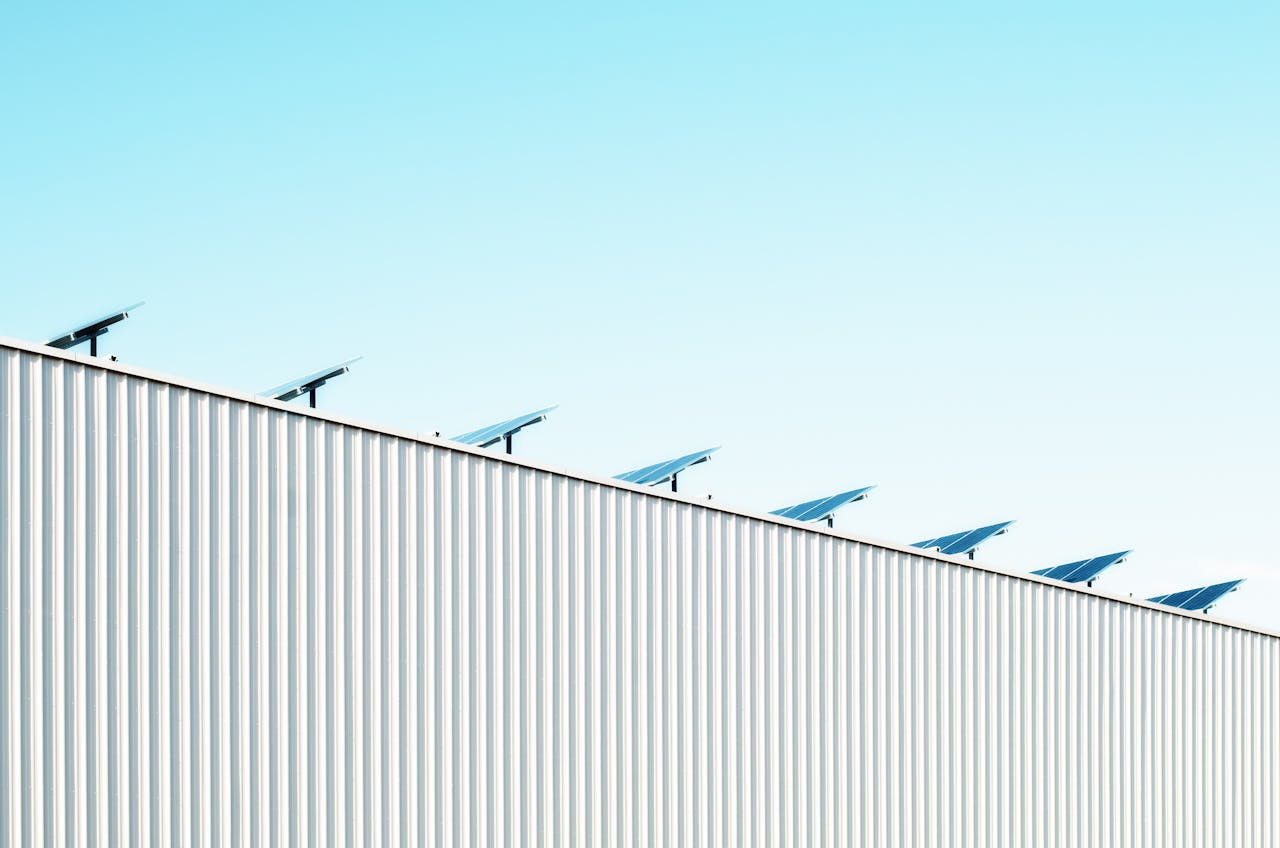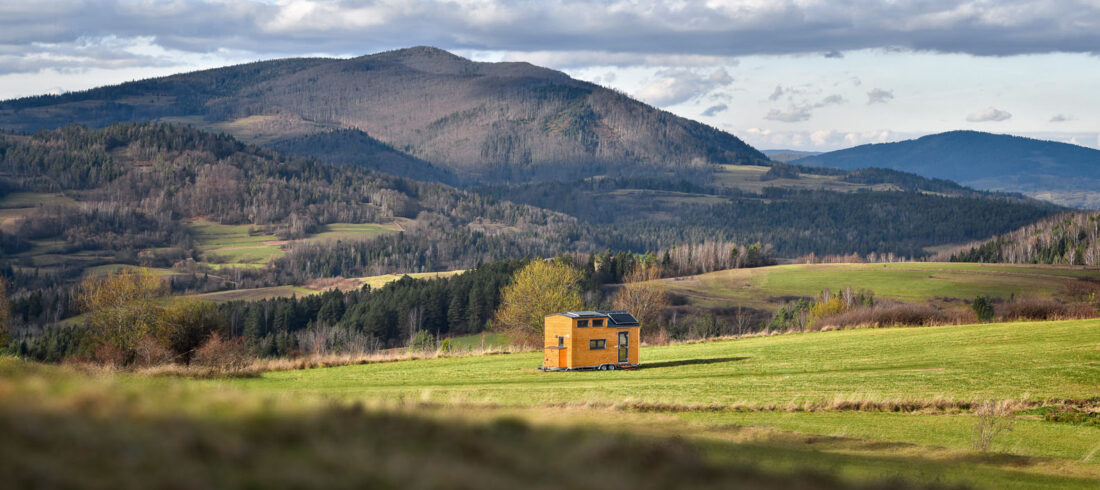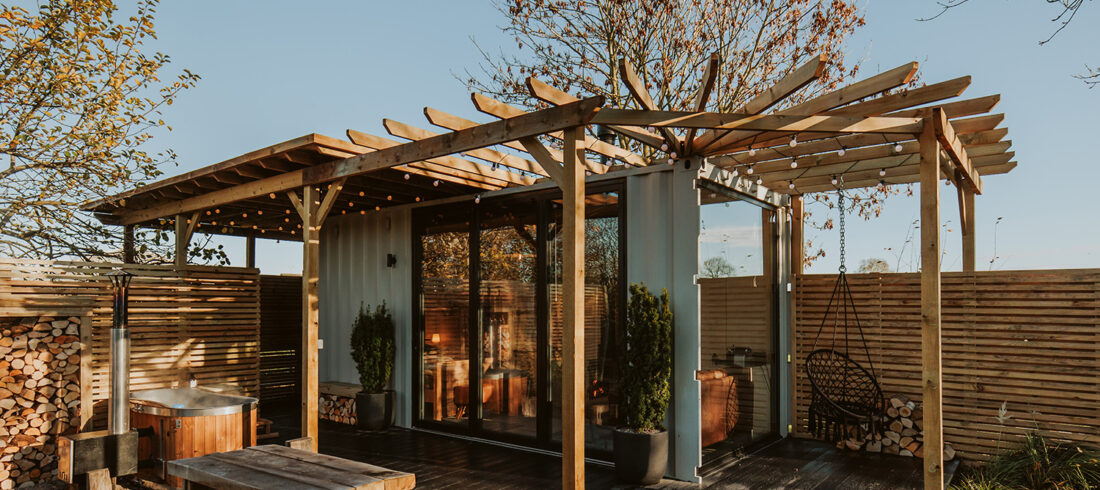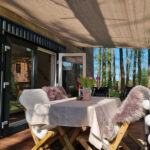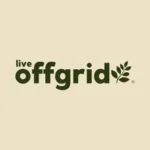Living off the grid provides you with the ideal opportunity to escape the rat race and get back to what really matters — the wonders of nature on your doorstep, free from the shackles of social media and the daily grind. For many in the UK, the concept is fast becoming a way of life, with more and more people looking to regain control of their lives and embrace the opportunities that an off-grid lifestyle can bring.
As with most things worth pursuing, the concept is not without its challenges. One of the main obstacles you’ll need to overcome is how to power your sustainable home if you’re not going to be connected to the standard grid. Thankfully, you’re certainly not short of options.
Join us as we take a deep dive into six off the grid energy solutions for your home, and discover just how obtainable going back to nature can be.
What are Off Grid Houses?
Off grid houses are buildings that have no connection to the standard electricity and gas systems — known as the National Grid. Instead, they are largely self-sufficient and get their power from alternative, primarily more sustainable, methods that are produced on-site.
A key consideration when exploring off grid energy solutions is ensuring you’re able to generate enough power to cover what you need. The energy regulator Ofgem estimates that the typical household in England, Scotland, and Wales uses 2,700 kWh of electricity and 11,500 kWh of gas each year, however actual levels of consumption can vary due to a number of factors.
These variables include:
- The size of your home
- How many people live in your home
- The energy efficiency of your home and appliances
- How often you use your appliances
Benefits of Off Grid Energy
There are many advantages of generating your own power off the grid. These include reduced energy bills, enhanced energy independence, and avoiding the possibility of power outages — not to mention the obvious environmental benefits.
As a nation, the UK is importing more and more energy from abroad — since our own systems are seemingly struggling to cope with demand. This increased reliance on power sourced overseas is having a detrimental effect on our carbon footprint and can hardly be called sustainable.
Meanwhile, the current Cost of Living Crisis has been driven by a number of factors, not least the ever-rising price of fuel that is, you guessed it, bought from abroad and therefore impacted by foreign war, climate issues, political strife, etc.
Utilising off the grid energy solutions allows you to break this cycle, take charge of your own destiny, and get one step closer to achieving financial freedom.
6 Off Grid Energy Solutions
There are six main methods people most commonly look to when powering their homes, without needing to rely on the traditional methods and their various drawbacks. Each avenue will naturally have its own advantages and disadvantages, so it’s important to explore every possibility to find the right solution for you.
The main six off the grid energy solutions are:
Generators
We won’t spend much time on this one, since it’s by far the least energy efficient of the bunch. Once the go-to for off grid power supply, generators are loud, produce pollutants, and can pose a risk when it comes to fuel storage. With all this to contend with, it’s no surprise that the humble “genny” has largely now been relegated to a support, break-glass-in-case-of-emergency role.
Solar Panels
You might not think so, given the UK’s unfortunately-deserved reputation of being quasi permanently under a coverage of clouds and dreariness, but solar panels are actually an extremely viable method of providing energy to your off-grid home — even in Blighty. This is because they’re able to generate electricity even when there’s little sun available, and it only takes about five hours of sunlight each day to power a house.
The constant push towards abandoning harmful fossil fuels and seeking greener sources of energy has meant that solar panels are becoming cheaper and much more efficient. There may even be special incentives available for adopting this form of power.
Any excess energy produced can be stored in batteries and held in reserve until needed, or even sold back to energy companies as a way of making a bit of extra income. This is also useful during the night or short winter days when sunlight can be at a premium.
To make the most out of solar energy, it’s beneficial to have a south-facing roof, or have enough spare land surrounding your property to place floor-mounted panels.
Wind Turbines
As an island, the UK benefits from there being quite a lot of wind, especially around coastal areas. This can be harnessed by using turbines to generate electricity, storing any excess power in batteries.
When you think of wind turbines in a domestic setting, you’d be forgiven for imagining a smart, stylish off-grid home being utterly dwarfed by a giant, imposing windmill. The reality is that turbines are now smaller and more efficient than ever before, so there’s no need to have a huge structure dominating the landscape.
A modest-sized domestic wind turbine can generate up to 10kWH if it’s placed in the right position and, unlike solar panels, it’s able to produce energy day and night since it doesn’t rely on the sun.
Despite the aforementioned efficiencies, wind turbines are still a lot more noticeable than solar panels — so they’ll certainly stand out. They’re also mainly useful if you’re near the sea or somewhere that has a steady breeze.
Hydro Power
Number four in our list of off the grid energy solutions is hydro power. This is one of the more rare sources of energy, since it requires very specific conditions to work, namely access to running water. If, however, you happen to live by a river or stream, you could be in luck!
Domestic hydro power (or micro-hydropower) is a fantastic long-term solution to generating electricity. The flow of water is practically inexhaustible and there’s no reliance on elements such as sunlight or wind strength. Although it attracts a hefty set-up cost, the overall benefits of this method far outweigh the drawbacks.
A domestic hydroelectric system could generate anything up to 50kWH with, like other forms of renewable energy, any excess being stored in batteries.
Ground Source Heat Pumps
Geothermal energy can be used to produce heating instead of electricity, so will need to be combined with another source of power to provide full coverage. The process works by drilling down through the ground and pumping warm water around your home.
Pipes can either be drilled vertically or buried horizontally underneath your garden, while the pumps themselves are extremely efficient. Much like hydro power, geothermal energy doesn’t rely on variable elements like wind or sunlight, meaning it’s ideal for maintaining a steady temperature, whatever the weather.
Hybrid Systems
The last of our recommended off the grid energy solutions actually involves combining some of the options we’ve mentioned above. A hybrid system typically combines solar and wind power or solar and geothermal, with the former being the most common.
Pairing one source of renewable energy with another means that you won’t be at the mercy of the unpredictable British weather, and can instead enjoy a much steadier and more reliable supply of power. The fact that solar panels and wind turbines are relatively cheap to install and operate makes them an extremely viable tag-team to fuel your off-grid lifestyle.
Because you’re using two sources of power, you can get by with installing fewer solar panels and smaller turbines while still generating all the energy you need. This means a hybrid system is unlikely to incur a much higher running cost than just relying on a single method.
Be Sure to Have a Back Up
Whichever of our off the grid energy solutions you choose, it’s important to ensure you have a backup option in place for if things do go wrong. During lengthy periods of adverse weather, the efficiency of systems such as solar panels can be severely affected. Even the battery you use to store excess power will drain eventually.
Energy-efficient generators make reliable replacements should your primary source of power be insufficient. They can be either operated manually, or be programmed to automatically take over when needed.
Another option for heating is to use wood or biomass burners. Not only can they make an impressive statement piece in any room, but they can also act as a cheap and simple way of warming up your home should your primary source of power struggle to keep up.
Embrace the Off Grid Lifestyle
Now that you’re clued up on the main off the grid energy solutions, why not consider joining the ever-growing number of people who’ve decided to jettison the generic and forge a new path for themselves? There are a number of benefits to off-grid living for you to enjoy, such as enhanced wellbeing and the creation of closer communities.
A shipping container home from Live Off Grid provides all the comforts you’d associate with traditional bricks-and-mortar buildings. These stunning constructions feature contemporary designs and provide a sustainable solution to today’s cramped, overcrowded cities.
If you’ve been dreaming about embracing the future and taking back control of your life, there’s never been a better time. Contact our team today to find out how we can help you make your aspirations a reality.
